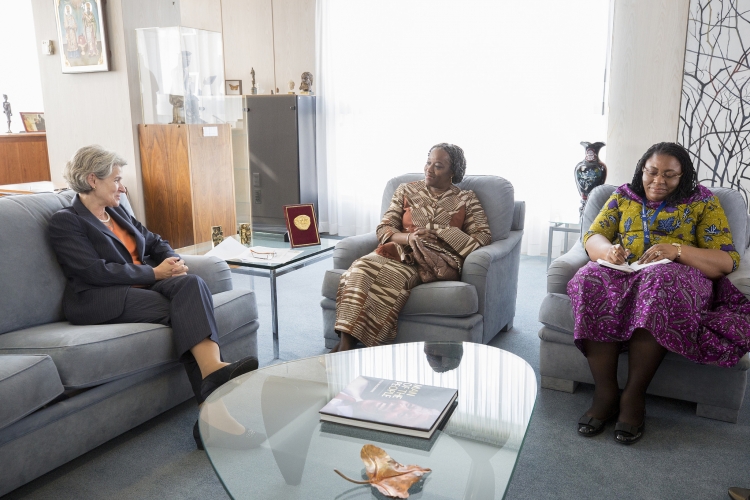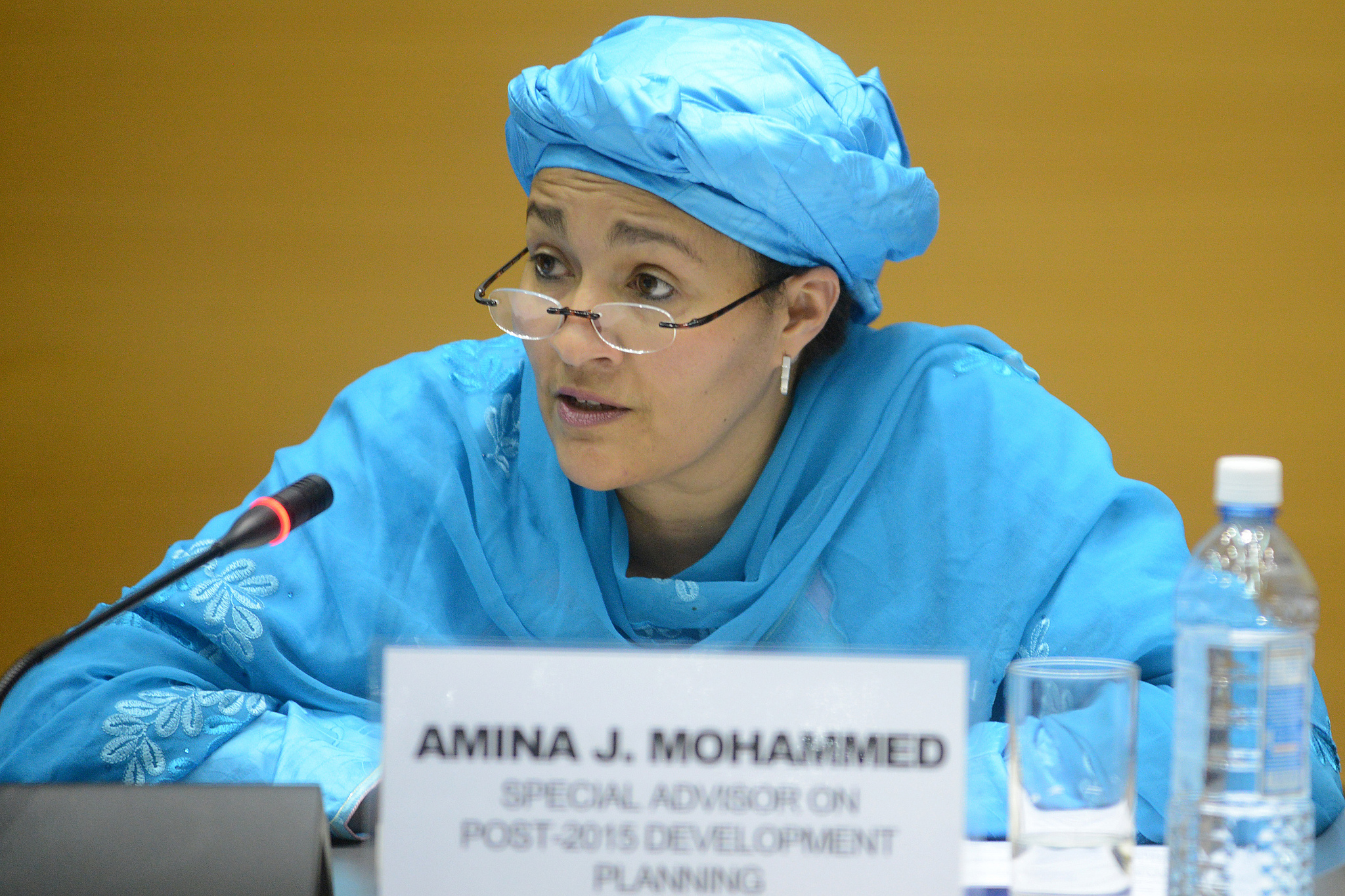From West Africa to the World

When the Provost of the American University of Paris introduced Ambassador Anna Bossman to students at the Inspire Africa event on 6 April 2018, he announced that in addition to being the Ghanaian Ambassador to France she is also the Ambassador to Portugal and an honorary Ambassador to UNESCO. As she took the stage, she announced that when she arrived, "the first thing I noted was that there are more women than men."
It is important to note that Inspire Africa - the student club that organized the event - is run by three West African students. Gloria Atanga, the President of the club, is from Cameroon, while the Vice President Rokhaya Wade and member Djena Kouyate are from Senegal.
In the real world, West African women are pushing boundaries. In February 2017, Nigerian-born Amina J Mohammed became the Deputy Secretary-General of the United Nations. Later that year, Nigeria appointed its first female Ambassador to France, Dr. Modupe Irele. Years earlier, in 2001, Mrs. Maryam Katagum was appointed as the Secretary-General of the Nigerian National Commission for UNESCO and in 2009, she became the Ambassador and Permanent Delegate of Nigeria to UNESCO - a position she still holds.
Amina J. Mohammed, Special Advisor on Post-2015 Development planning. Image Credits: Flickr/IISD Reporting Services.
People say that Black women have always been on the forefront of change. Extending this logic, Ambassador Bossman removed the black and said that women have always been at the forefront of things. "Women shape the conversation," she said. She also told the Peacock Plume that she would advise young women to always believe in themselves. "Their mothers are phenomenal women. It does not matter where they are, they do extremely well."
The current President of Nigeria, Muhammadu Buhari, once said, "I don't know which party my wife belongs to, but she belongs to my kitchen and my living room and the other room." Being from the older generation, he received a lot of criticism, not for the statement but for the fact that he said it in Europe and next to Chancellor Angela Merkel. His supporters argued, "what's wrong with what he said? This is how we do it in Africa." The younger generation was disgusted because it not only reflected badly on Nigeria and Africa, but that statement was a reflection of gender roles and the place of the woman or wife in contemporary African societies. In northern Nigeria, boys are often seen as the breadwinners, or the "man of the house," while the woman is supposed to cook and take care of the children. But down in the south, women are the breadwinners - whether it is wearing a suit and sitting in meetings with CEOs or being entrepreneurs, sitting on the floor of Balogun market and calling every passerby to buy their products. Needless to say, the president is from the North.
Anna Bossman, Amina J. Mohammed, Maryam Katagum and Modupe Irele are phenomenal women. They have broken boundaries and opened doors to young West African girls. When advising young girls who want to do more than belong in the kitchen and the living room and the other room, Ambassador Bossman said that money should not be the main motivator, that it will kill one's passion. "Let your sense of doing things - not for yourself - but for others, lead you. You will always get something back," she said. The most amazing thing about her - and Ambassador Irele - is not just that they have "made it" in the outside world; it is that they are encouraging others to do the same. In an interview in February 2018, Ambassador Irele said that she wanted young girls to know that opportunities -ambassadorships, high positions in the societies, seats at the table - are available and "not closed to them."








